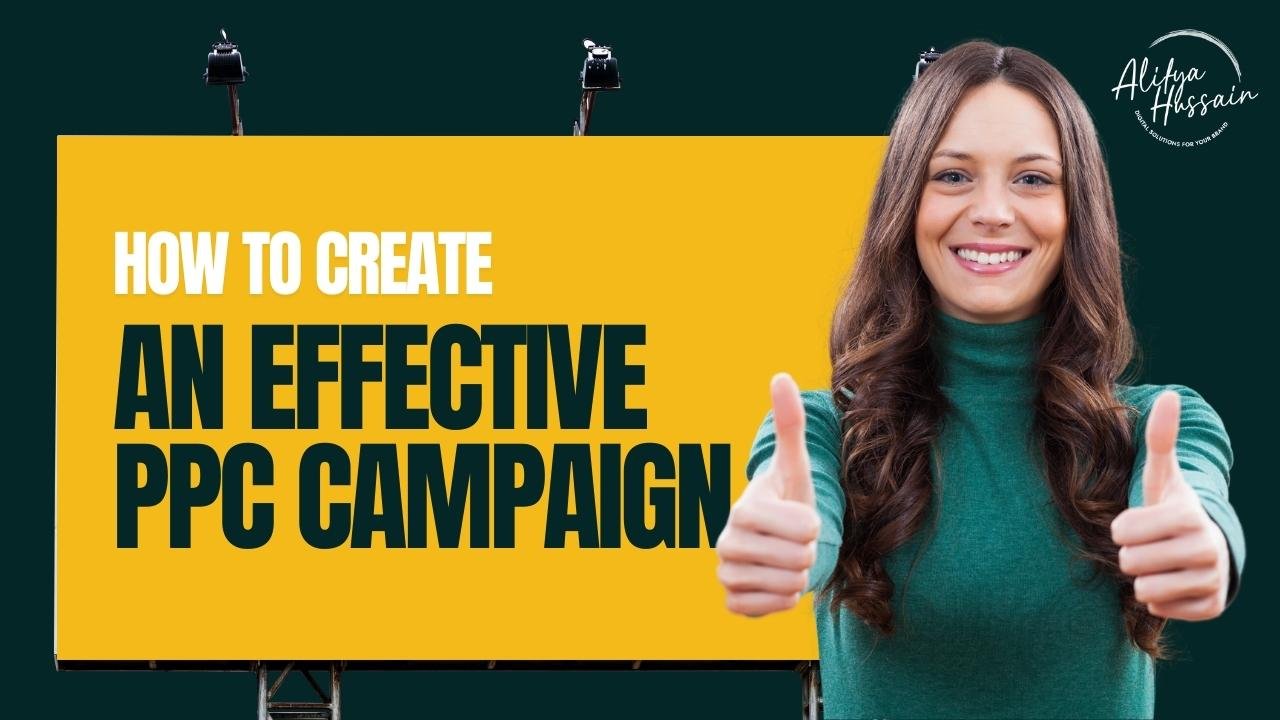Introduction to PPC Campaign:
In today’s digital landscape, Pay-Per-Click (PPC) advertising is a powerful tool to drive targeted traffic and achieve your marketing goals. Discover the key strategies and best practices to create an effective PPC campaign that delivers measurable results.
Table of Contents:
- Introduction
- Understanding the Power of PPC Advertising
- Setting Clear Goals and Objectives
- Conducting Keyword Research for Targeted Campaigns
- Crafting Compelling Ad Copy
- Optimizing Landing Pages for Higher Conversions
- Effective Bid Management Strategies
- Tracking and Analyzing Performance
- Continuous Campaign Optimization
- Conclusion and Call to Action

Understanding the Power of PPC Campaign Advertising
PPC advertising allows businesses to display their ads on search engine result pages or other relevant websites and pay only when someone clicks on their ads. This targeted approach ensures that you reach potential customers who are actively searching for products or services like yours, maximizing your chances of conversion.
Setting Clear Goals and Objectives
Before diving into creating your PPC campaign, it’s crucial to define clear goals and objectives. Whether you aim to increase website traffic, generate leads, or boost sales, having a specific goal in mind will shape your campaign strategy and help you measure success accurately.
Conducting Keyword Research for Targeted PPC Campaign
Keyword research is the foundation of a successful PPC campaign. Identify relevant keywords that align with your business and target audience. Use keyword research tools to assess search volume, competition, and identify long-tail keywords to optimize your campaign for maximum impact.
Crafting Compelling Ad Copy
Creating compelling ad copy is essential to grab attention and entice users to click on your ads. Craft concise, benefit-driven headlines, and persuasive ad descriptions that highlight your unique selling propositions. Incorporate the focus keyphrase naturally in your ad copy to improve relevancy.
Optimizing Landing Pages for Higher Conversions
A well-designed landing page is critical to driving conversions. Create landing pages that align with your ad copy and deliver a seamless user experience. Optimize landing page elements such as headlines, content, forms, and call-to-action buttons to encourage visitors to take the desired action.
Effective Bid Management Strategies
Managing your PPC campaign bids effectively ensures that you achieve a desirable balance between cost and visibility. Set a budget that aligns with your goals and monitor your bids regularly to maintain optimal ad positioning and maximize your return on investment (ROI).
Tracking and Analyzing Performance
Tracking the performance of your PPC campaign is crucial for optimization and measuring success. Use analytics tools to monitor key metrics such as click-through rates (CTR), conversion rates, and cost-per-click (CPC). Analyze the data to identify areas for improvement and make data-driven decisions.
Continuous PPC Campaign Optimization
An effective PPC campaign requires ongoing optimization to stay competitive. Regularly review your keyword performance, ad copy, landing pages, and bidding strategies. Experiment with A/B testing to identify the most effective elements and refine your campaign accordingly.
Conclusion
Creating an effective PPC campaign requires a strategic approach and continuous optimization. By understanding the power of PPC advertising, setting clear goals, conducting keyword research, crafting compelling ad copy, optimizing landing pages, implementing effective bid management strategies, and tracking performance, you can drive targeted traffic and achieve your marketing objectives. For expert guidance and support in creating and managing your PPC campaign, contact Alifya Hussain, a trusted digital marketing specialist.




